Commentary: Beneath the cycle of Malaysian voter excitement and exhaustion, a contest brews
An op-ed that I wrote for The Interpreter, Lowy Institute on 14 February has been republished by Channel News Asia.
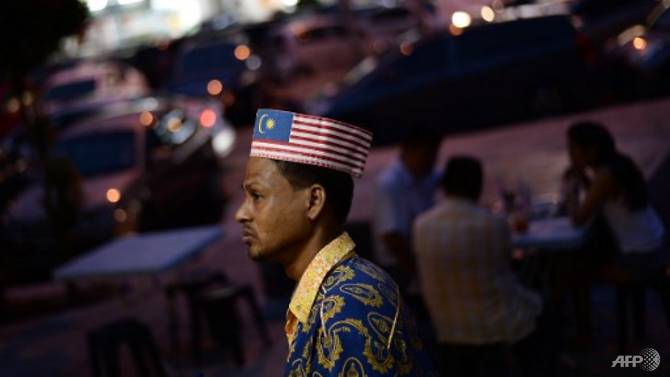
An op-ed that I wrote for The Interpreter, Lowy Institute on 14 February has been republished by Channel News Asia.
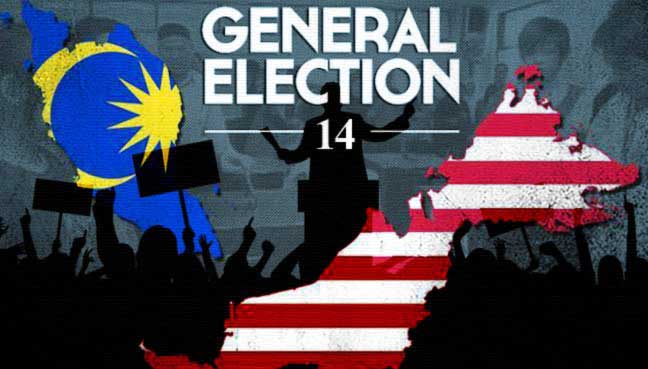
Photo: Free Malaysia Today
Thanks to Free Malaysia Today for their fantastic coverage of an op-ed of mine on the Malaysia elections that has been published in The Interpreter by the Lowy Institute. It’s a little sensationalist – I don’t think bawang are that bad – but obviously my piece had some kind of impact, so that’s great.
GE14 debate about onions, not substantive policies, says report
KUALA LUMPUR: Barisan Nasional (BN), opposition leaders and voters continue to talk about the general election, but something is sorely lacking in the content, says a report published by a think tank.
What’s missing is public policy debate or any form of storytelling about Malaysia’s post-2013 trajectory, according to the analysis by Amrita Malhi in The Interpreter, a publication of the Lowy Institute, an independent, nonpartisan think tank based in Sydney.
Amrita quoted an unnamed person as saying: “They are focused on the price of bawang (onions).”
Those she spoke to pointed out the frustrations of a group of young people on Twitter, called the #UndiRosak movement, who call on voters to protest by lodging spoiled ballot papers.
Amrita noted that although everyone was talking about politics, it seemed as though Malaysian voters had lost their appetite for it.
She added however that looks could be deceiving as the contest was on and Malaysians were considering the various possibilities as they prepare for the polls which must be held by August. Read more
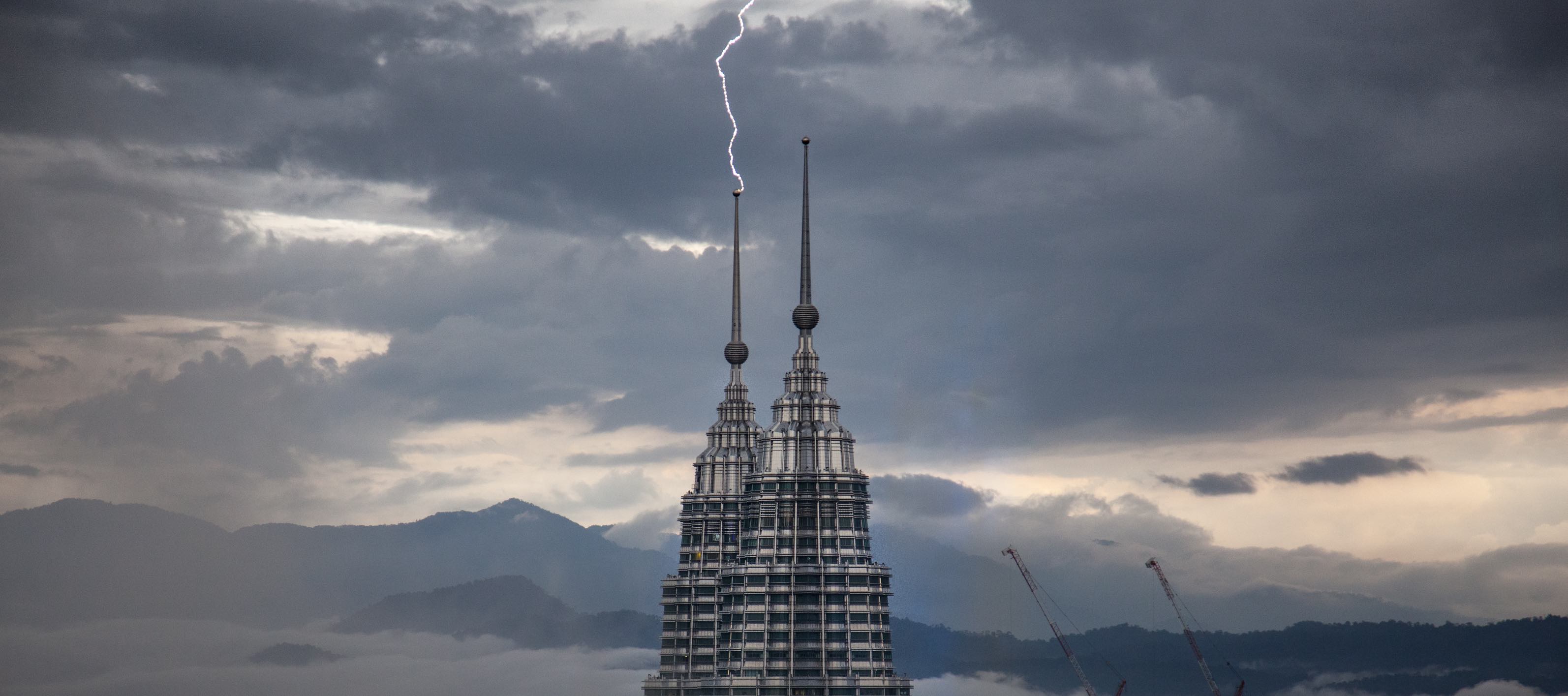
Lightning strikes the Petronas Towers, Kuala Lumpur in April 2017 (Photo: Sitoo/Flickr)
I wrote an op-ed for The Interpreter on how exhausted Malaysian voters seem to feel from hearing the endless tactical talk that surrounds contemporary elections. I have a sense that scratching the surface, however, shows just how aware many Malaysians are that this is an important election, with high stakes, in which both sides of politics are well out of their comfort zones.
The full op-ed can be found below.
Malaysia’s election – electric and exhausting
In media studios, food courts, street stalls, and offices, I watch Malaysian political observers and insiders perform the same routine.
First, they sigh and look bored with the coming general election, due sometime before August. They talk of the lack of debate and point to a group of young people on Twitter, now called the #undirosak movement after politicians and the media amplified their voices, who call on voters to protest by lodging spoiled ballot papers.
This went on all last week. Some are annoyed that years spent building an electoral alternative to the Barisan Nasional government now appear wasted, after 92-year-old former Prime Minister Mahathir Mohamad changed sides and seemingly captured the opposition. Negotiations continue, but his party now seems set to run the largest number of candidates in the electoral coalition called the Pakatan Harapan.
Then they begin recounting the various futures the election result might bring, becoming increasingly animated as they go on. There are as many different versions of this conversation as there are speakers, but in short, seats might fall; voter blocs might split or swing; states might change governments; voters on either side may or may not come out to vote; internal faction fights might cause leadership spills; royal families might intervene, or perhaps back the wrong team; and the Borneo states might side with whichever grouping wins the most seats on the Peninsula.
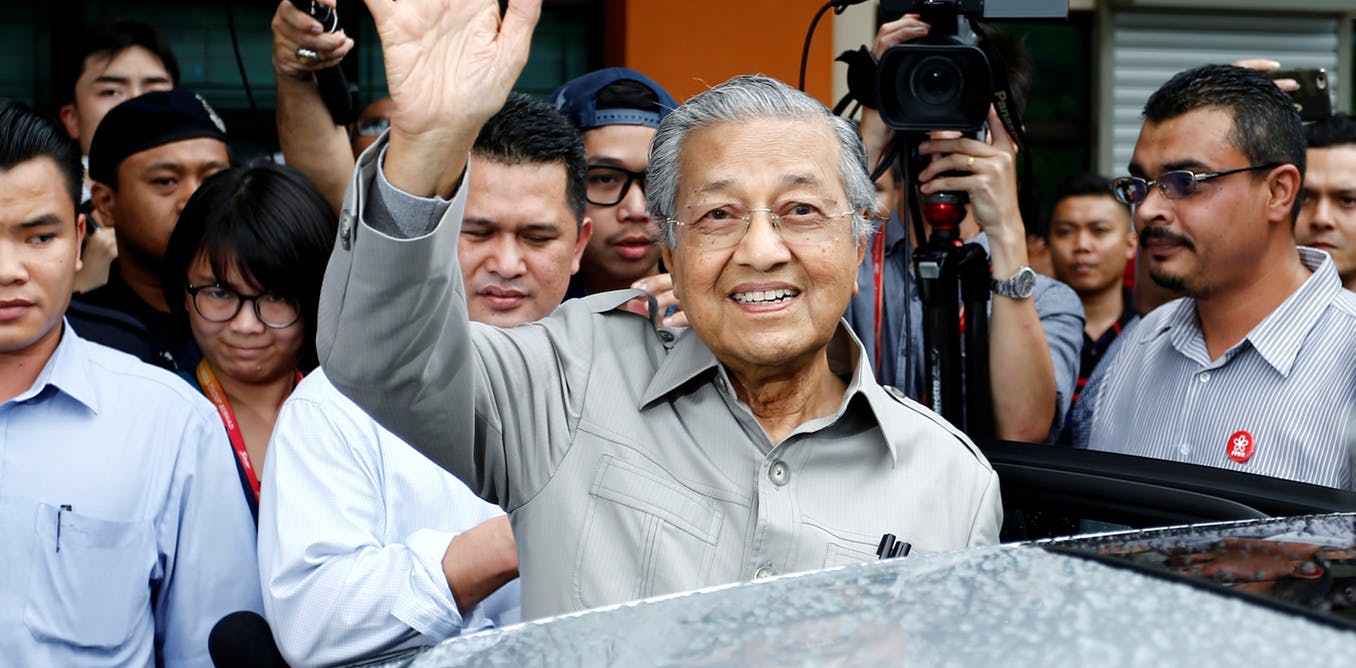
At 92, former Malaysian prime minister Mahathir Mohamad is again vying for the country’s top job. Photo: Reuters, Lai Seng Sin
The Conversation has published an op-ed I wrote discussing the unprecedented political development of Mahathir Mohamad becoming leader of the coalition of opposition parties against Najib Razak. Mahathir’s rise to leadership puts him on the same side as his former political enemy, Anwar Ibrahim, who is currently serving a jail term and will likely seek a royal pardon in June to readmit himself to political life.
This is an abridged version of a longer piece published by Inside Story.
“On January 8, former Malaysian prime minister Mahathir Mohamad announced his intention to contest the next general election, due sometime before August this year.
In an unprecedented political turnaround, Mahathir is now leader of the alliance of opposition parties bidding to oust the incumbent, Najib Razak. Mahathir handpicked Najib in 2009 to head his former party, the United Malays National Organisation (UMNO), and the coalition it has led since the 1970s, Barisan Nasional.
To add further intrigue, Mahathir now appears to be on a unity ticket with his old enemy, Anwar Ibrahim, for control of the country.
Mahathir, who first rose through UMNO ranks to become prime minister in 1981, is 92. His decision to stand again has raised questions about the state of politics in this young nation, whose median age is 28. Malaysian and international media outlets alike have carried comments along the lines that nominating somebody so old is a “laughable” choice.
Yet the key to this decision is not in the nation’s age profile but the calculus of building electoral coalitions in a diverse nation bearing the scars of political battles fought since 1998.
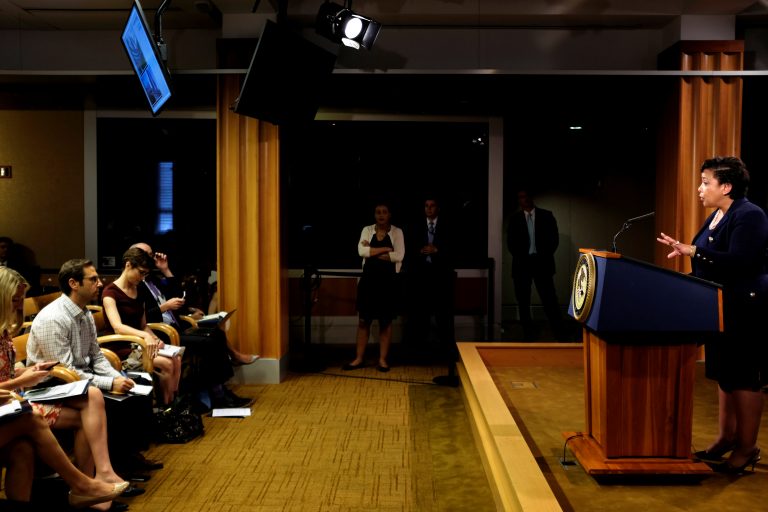
Image: Former US Attorney-General Loretta E. Lynch addressing Washington journalists over the Department of Justice investigation into funds misappropriated from state development fund 1MDB. Photo: Reuters/James Lawler Duggan, selected by East Asia Forum.
Today, I published a second op-ed in a series of two pieces featured by East Asia Forum, this time looking forward to how international developments might make life difficult for Malaysian Prime Minister Najib Razak, especially if they are capitalised on politically by the opposition alliance headed by former Prime Minister Mahathir Mohamad.
The full text of the opinion piece is below.
The international fallout from Najib’s 1MDB scandal
Author: Amrita Malhi, ANU
The international consequences of Malaysian Prime Minister Najib Razak’s handling of the 1Malaysia Development Berhad (1MDB) scandal will likely continue to escalate. The affair concerns US$800 million from the development fund that investigators believe to have passed through Najib’s personal bank accounts, in addition to other funds believed to have moved through foreign intermediaries and investment vehicles.
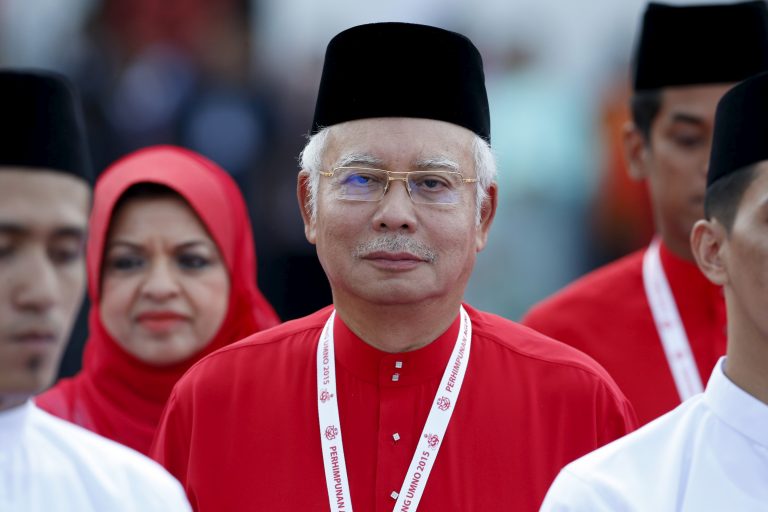
Malaysian Prime Minister Najib Razak. Imaged selected by East Asia Forum.
Today, I published a summary in East Asia Forum of the domestic politics surrounding Malaysian Prime Minister Najib Razak at the end of 2016.
Najib might seem to have sealed up every institution he can access to ensure he cannot be toppled, but he still needs to ensure that his Barisan Nasional government can outmanoeuvre the opposition alliance with former Prime Minister Mahathir Mohamad at its helm.
This is because it is no longer enough for successive Barisan governments to simply win electoral contests that are designed to deliver victory to them in any case, they also need to ensure they rule with a modicum of legitimacy.
The full text of the article is below.
Najib fights to retain control after 1MDB scandal
Author: Amrita Malhi, ANU As 2016 draws to a close, Najib Razak remains Malaysia’s prime minister. This is despite two years of scandal, scrutiny and speculation over funds missing from state development fund 1Malaysia Development Berhad (1MDB), including US$800 million that is believed to have passed through his personal bank accounts.
Najib quickly shut down Malaysian investigations into 1MDB in 2015. Yet external agencies and media sources have since tracked what they believe is an international chain of transactions enabling billions to allegedly be siphoned out of the fund, through foreign banks, funds, shell companies and the prime minister’s personal contacts.
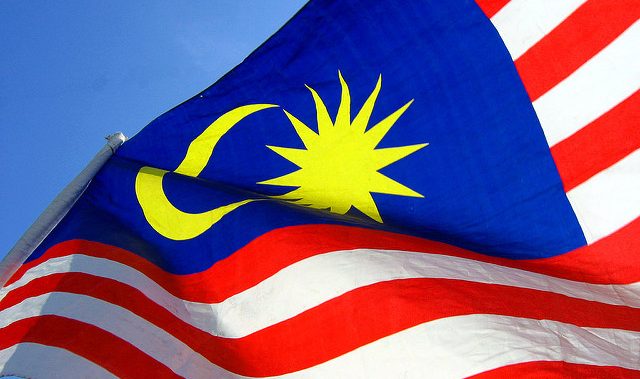
Image selected by Asian Currents.
Today the Asian Studies Association of Australia’s bulletin Asian Currents published a piece I wrote on how to do Malaysian Studies better in Australia. We can only watch Prime Minister Najib and his opponents’ moves and counter-moves for so long before we articulate a broader relevance for our work for communities of interest who care about Malaysia, Malaysians in Australia and Malaysia-Australia relationships.
Australia needs to look beyond Malaysia’s current political impasse and engage more widely with an important neighbour
For some time now, Malaysia watchers in Australia have focused much of their attention on the potential for the 1MDB crisis, and the 2013 election result before it, to unseat UMNO president and Barisan Nasional prime minister Najib Razak.
The imaginative pull these intertwined issues exerts is understandable—the sense of slowly building crisis, the moves and countermoves by government and opposition parties, and the clever deployment of hidden political resources are fascinating, especially when events appear to gather pace. Equally alluring is the temptation to be the person who called the critical moment just before it happened.
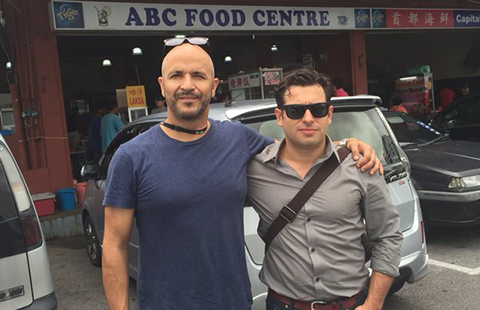
Australian cameraman Louie Eroglu (left) and journalist Linton Besser. Photo from Twitter.
Yesterday I was interviewed by Patricia Karvelas on ABC Radio National’s Drive program on the recent detention of two Australians, Linton Besser and Louie Eroglu, in Kuching. The full audio of the interview is available here.
Today, I expanded on my interview in a fuller explainer for New Mandala, which I’ve also pasted below with the link at the bottom of the page. Update on 17 March: my piece on New Mandala has been quoted by Amanda Hodge writing in The Australian, and her article is available here.
A pressing concern
By Amrita Malhi, Guest Contributor — 15 March 2016
Amrita Malhi goes beyond the headlines to examine what’s behind the expulsion of an Australian journalist and cameraman from Malaysia.
ABC Four Corners journalist Linton Besser and camera operator Louie Eroglu are returning to Australia, having been “deported” from Malaysia after authorities decided not to charge them with obstructing a public servant under Section 186 of Malaysia’s Penal Code.
In recent days, both men have been detained in a Kuching hotel, facing allegations by the Malaysian government that they had attempted to “barge into” the path of Prime Minister Najib Razak, not only creating a security risk for him and his minders, but also violating Malaysian journalistic norms. Read more
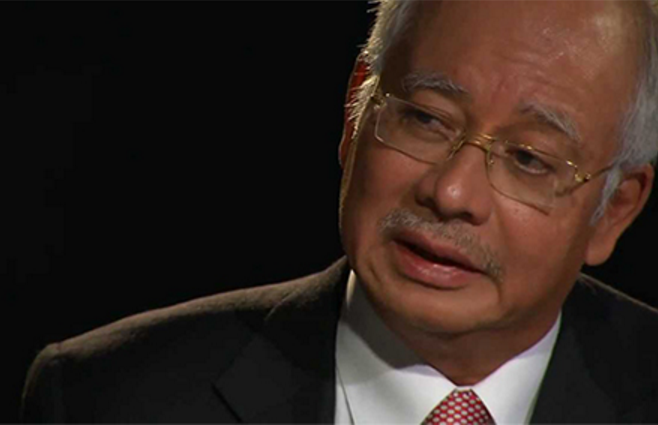
Malaysian Prime Minister Najib Razak is currently in the United States for an ASEAN Summit. Stock image selected by New Mandala.
Yesterday, I published a piece on New Mandala that looked at how Australia is managing its relationship with Malaysia in light of the scandals surrounding its Prime Minister Najib Razak, and the lack of a viable alternative government for international governments to deal with. It also mapped out some of the moves UMNO has made since the 2013 election to restructure politics in its favour as the nation approaches the next election in 2018. The full text is below.
Najib and Malaysia’s Road to Redemption?
BY AMRITA MALHI, GUEST CONTRIBUTOR – 19 FEBRUARY 2016
As leading party UMNO and its embattled PM desperately cling to power, there could be even darker times ahead for Malaysia’s democracy.
The actions of Malaysia’s Prime Minister Najib Razak have been met with widespread disbelief from domestic and international observers.
For many, there seems to be no end to the series of scandals directly or indirectly linked to Najib and his associates, beginning with a financial investigation abruptly brought to an end by a newly-appointed Attorney-General, Mohamed Apandi Ali.
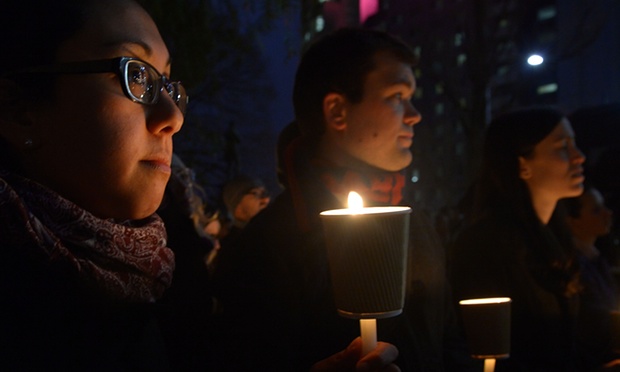
Events in Paris are already provoking new debates about whether trust in multiculturalism is justified.’ A 2015 refugee vigil in Sydney, Australia. Photograph: Mal Fairclough/AAP
That’s small-l liberal debates around tolerance, multiculturalism and interculturalism , within the context of Western liberal democracies.
I think it is worthwhile even if they do seem limited in their capacity to change things — after all, the adoption of multiculturalism and the Racial Discrimination Act 40 years ago has underpinned better lives for non-white people in Australia.
And no, I don’t think anyone should be called a pseudo-white person for participating in debates about where multiculturalism is going now.
Here is an op-ed I published on this in the The Guardian.
Showing solidarity with migrants is more than ‘comfort’ for white people
Tolerance isn’t the most ‘radical’ approach to racism. So why do many non-white Australians participate in movements that promote it as a solution?
Tony Abbott’s prime ministership sparked furious debate about Australia’s commitment to multiculturalism, including a push to wind back 18c, slights against Indigenous “lifestyle choices”, and questions about Australian Muslims’ loyalty to the nation.
As this period now fades into ancient history, Australia’s politicians have begun to re-invest in the multicultural narrative, a prescient move given the polarised debate after recent events in Paris. Earlier this month, the three major political parties made sure to send a high-level representative to address a conference organised by the Federation of Ethnic Communities Councils of Australia (Fecca).
The mood at the conference was palpable: after years of defensiveness, it was now time to formulate a new national agenda for multicultural policy, practice and public advocacy.